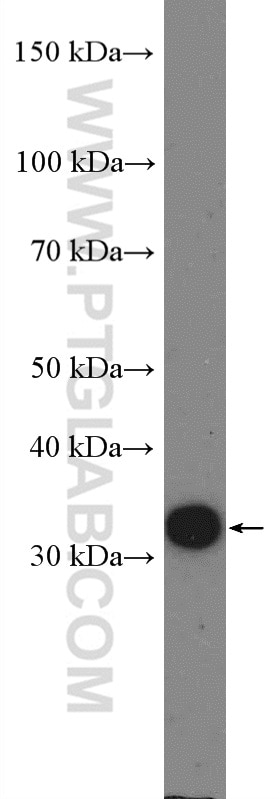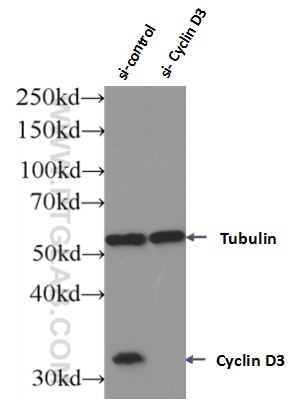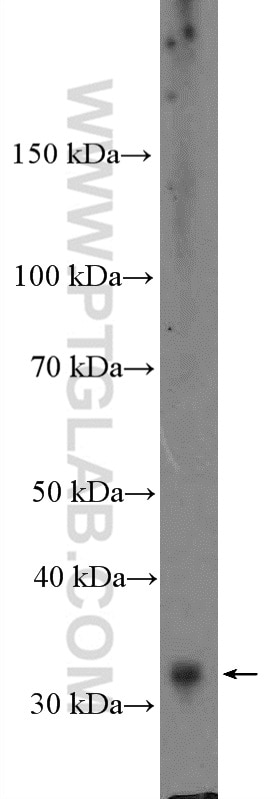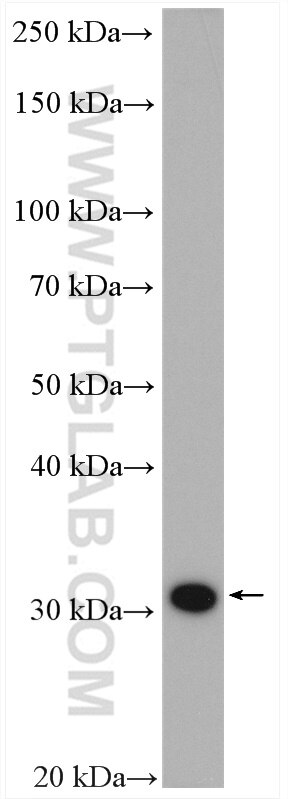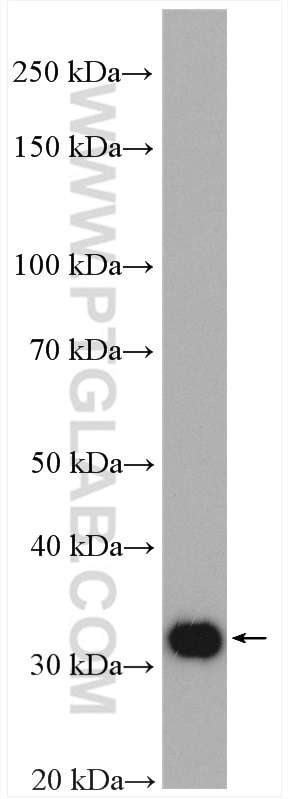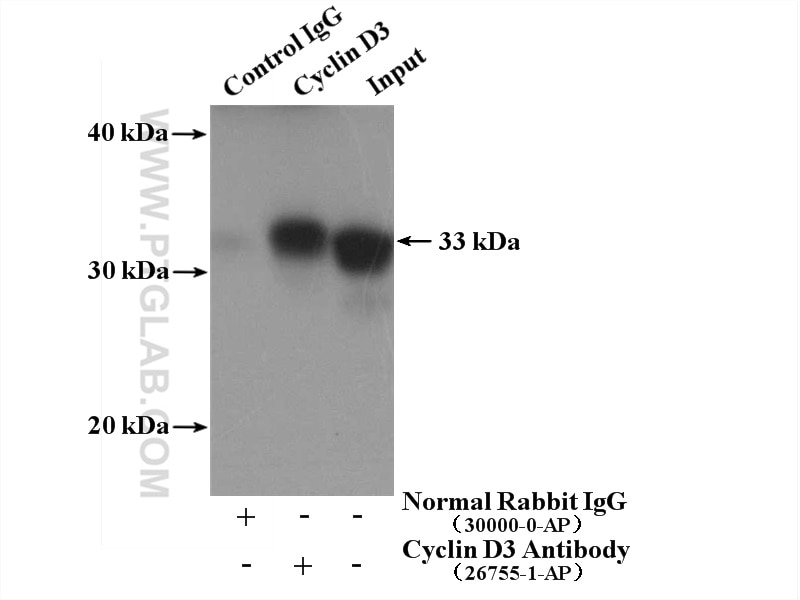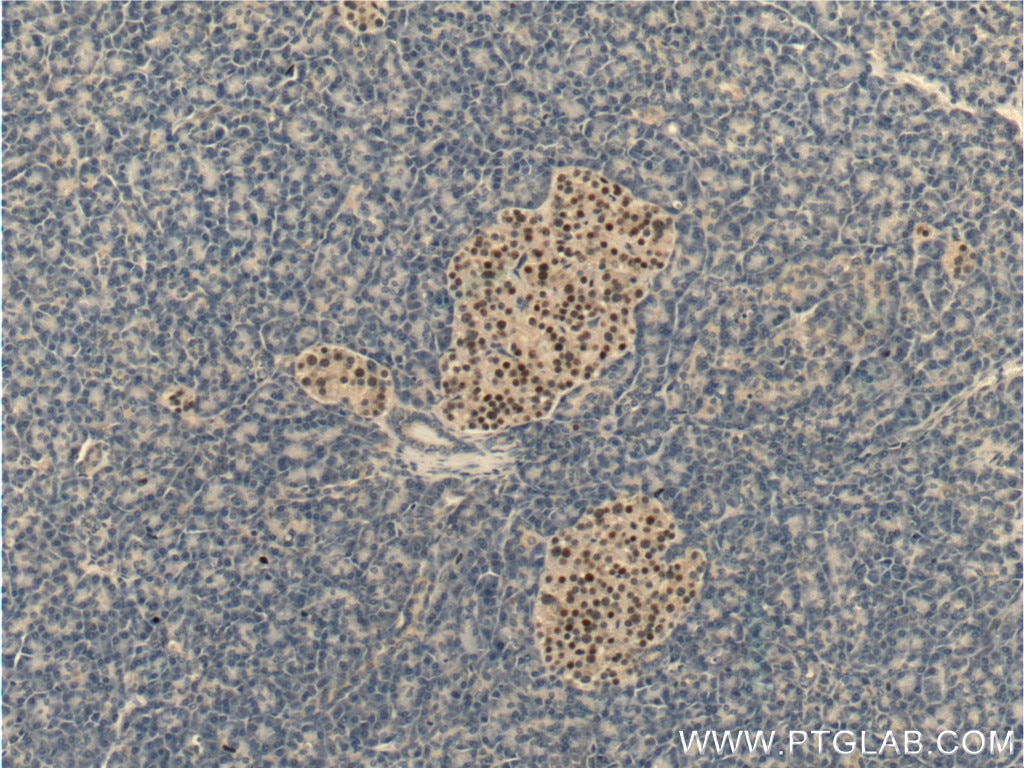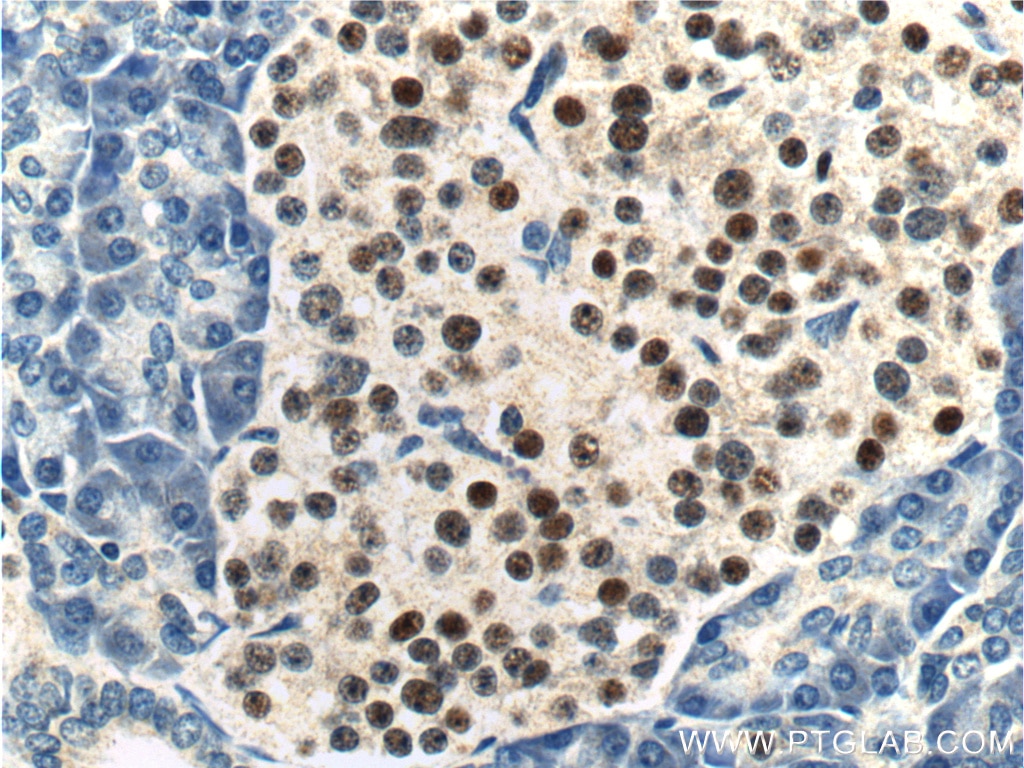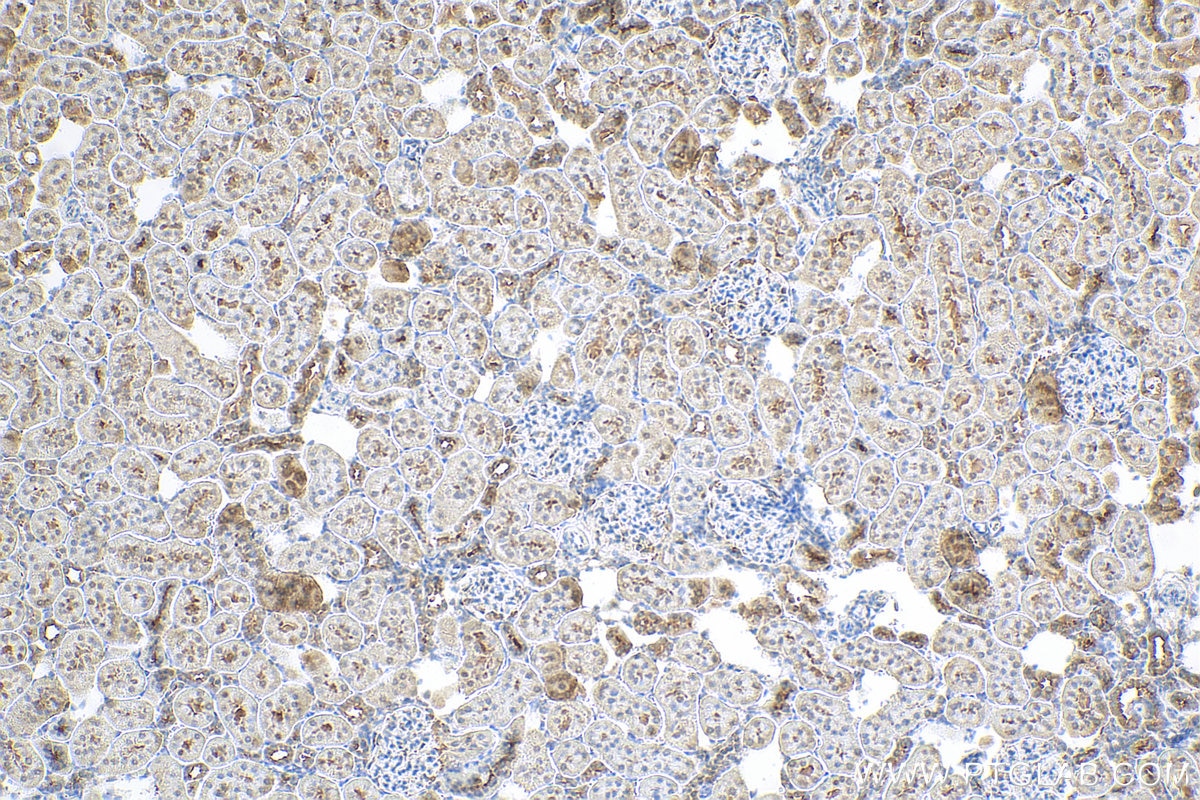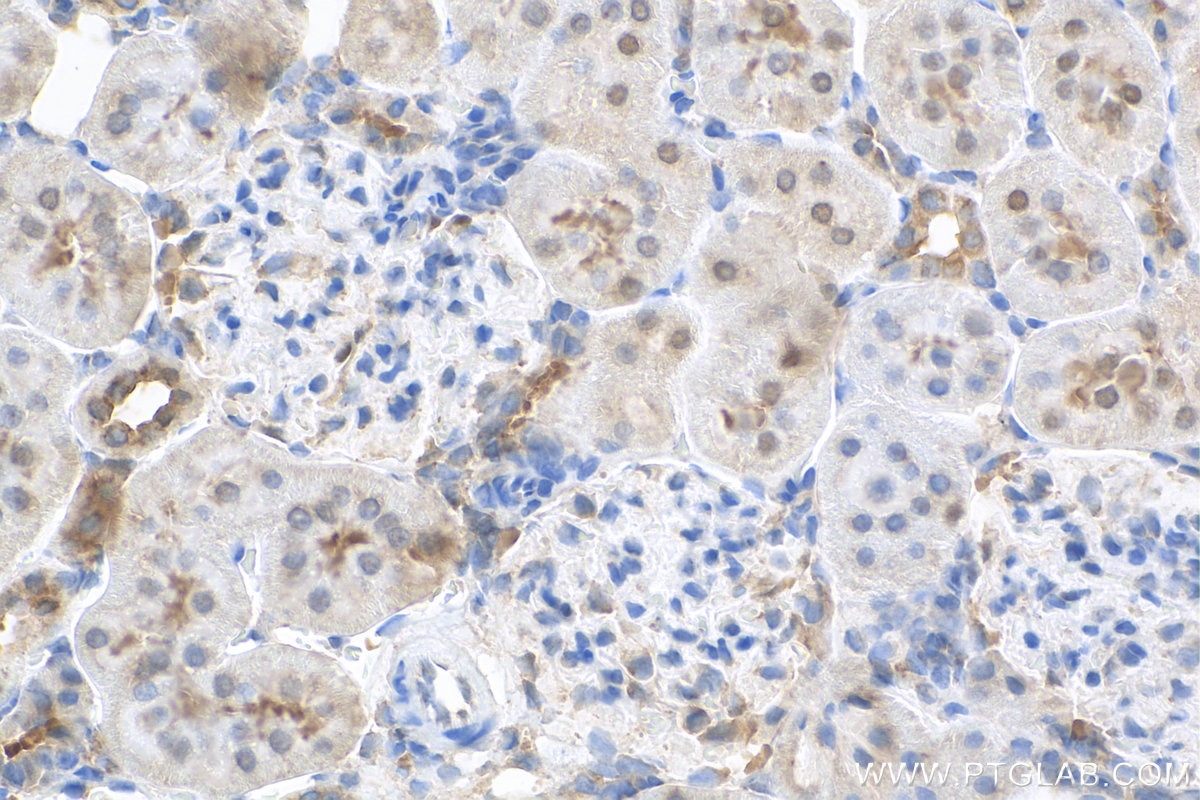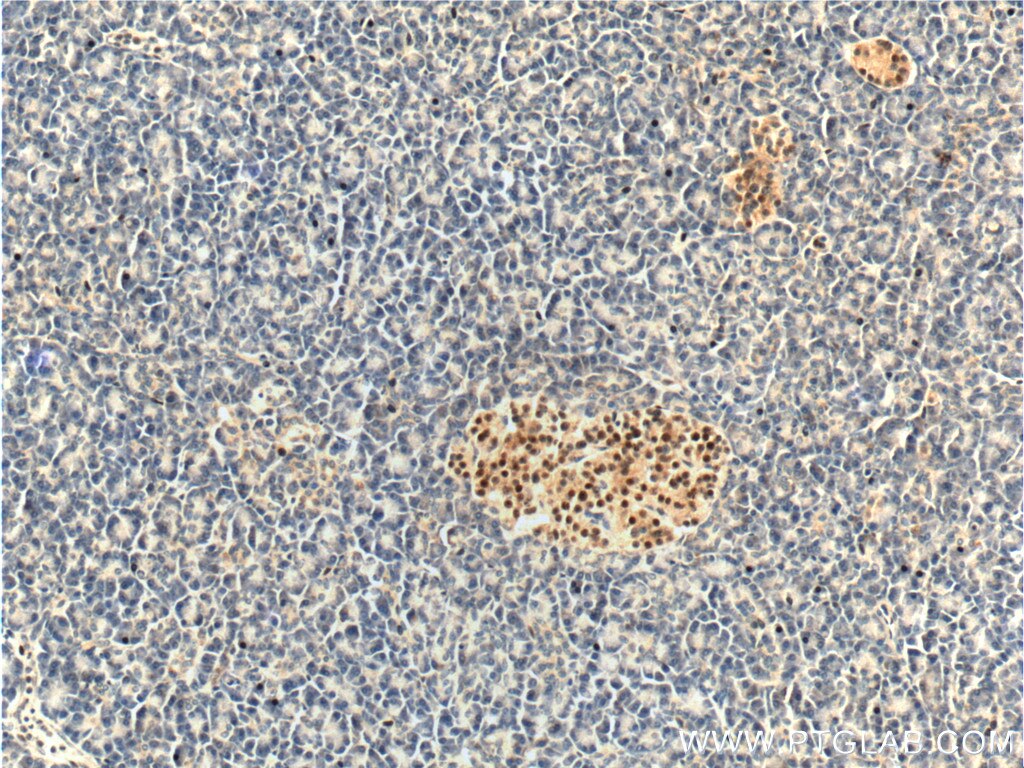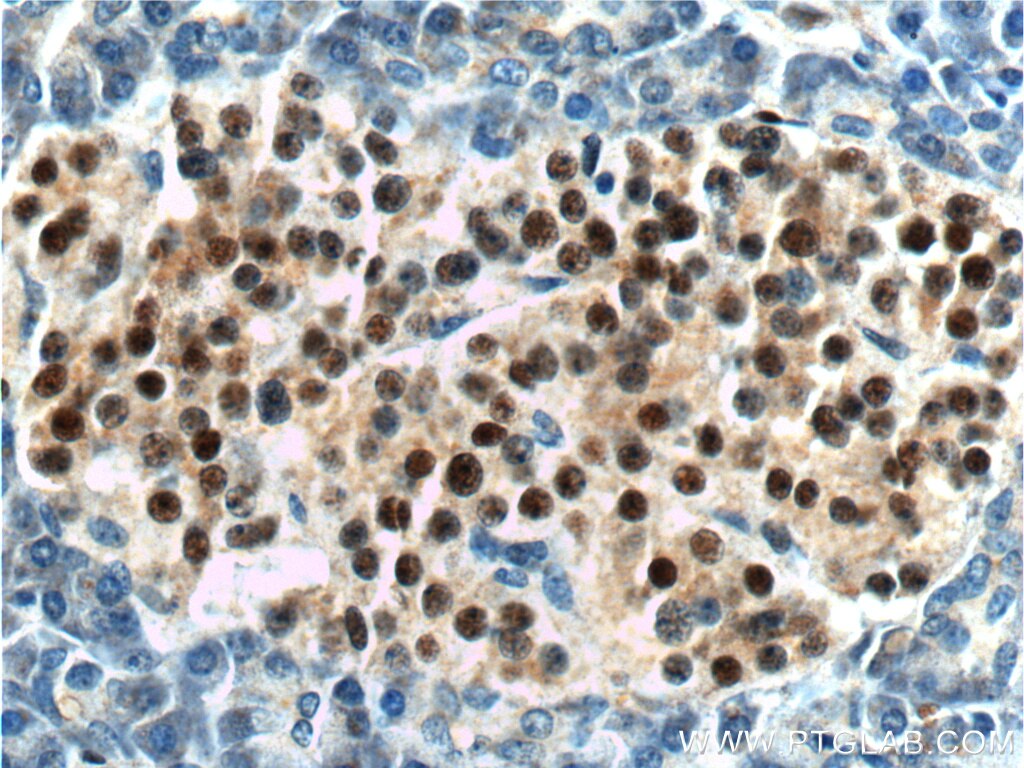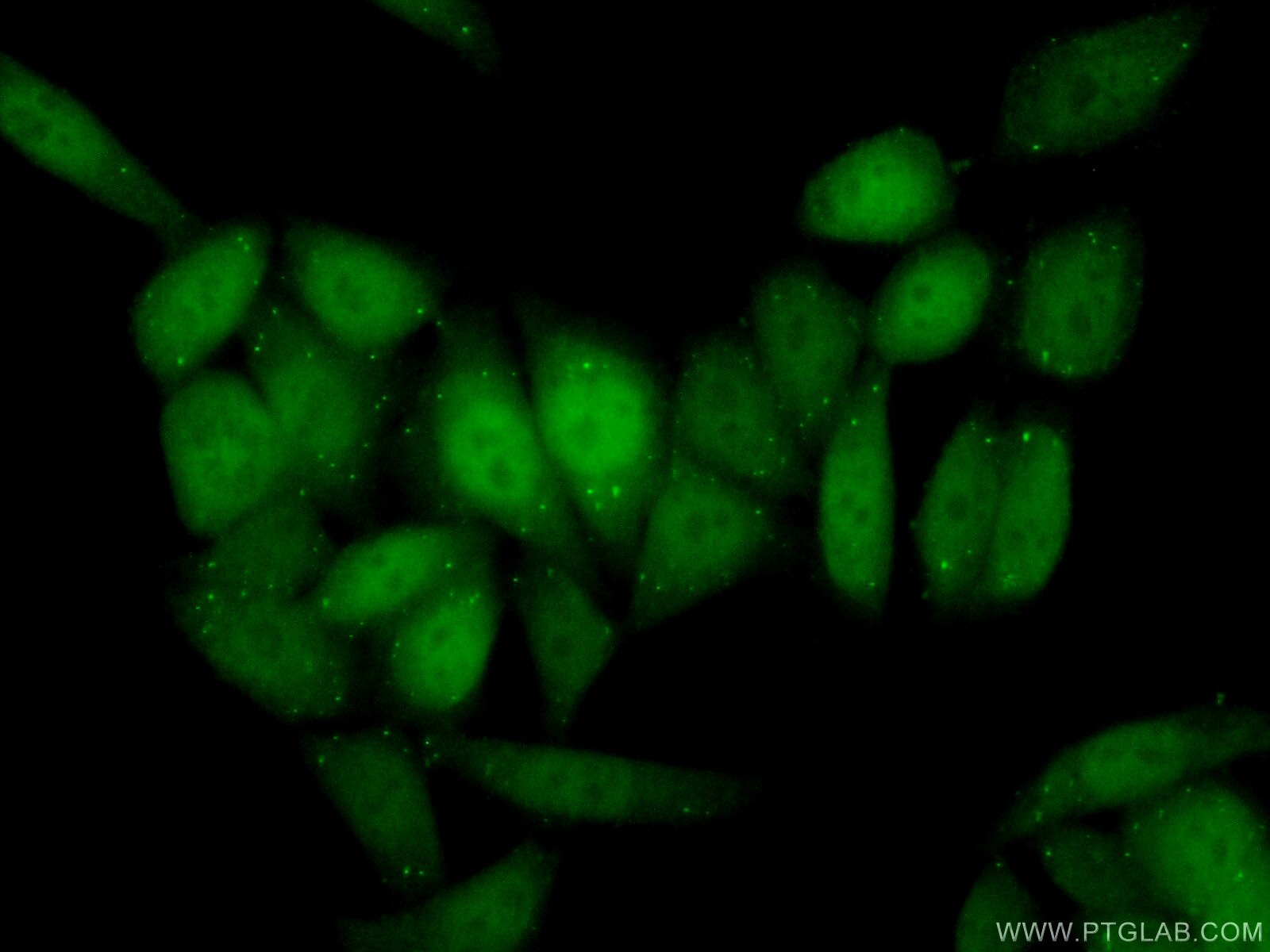Validation Data Gallery
Tested Applications
| Positive WB detected in | C6 cells, K-562 cells, Jurkat cells, HeLa cells |
| Positive IP detected in | K-562 cells |
| Positive IHC detected in | human pancreas tissue, rat kidney tissue Note: suggested antigen retrieval with TE buffer pH 9.0; (*) Alternatively, antigen retrieval may be performed with citrate buffer pH 6.0 |
| Positive IF/ICC detected in | HeLa cells |
Recommended dilution
| Application | Dilution |
|---|---|
| Western Blot (WB) | WB : 1:500-1:2000 |
| Immunoprecipitation (IP) | IP : 0.5-4.0 ug for 1.0-3.0 mg of total protein lysate |
| Immunohistochemistry (IHC) | IHC : 1:50-1:500 |
| Immunofluorescence (IF)/ICC | IF/ICC : 1:50-1:500 |
| It is recommended that this reagent should be titrated in each testing system to obtain optimal results. | |
| Sample-dependent, Check data in validation data gallery. | |
Published Applications
| KD/KO | See 1 publications below |
| WB | See 39 publications below |
| IHC | See 4 publications below |
| IP | See 1 publications below |
Product Information
26755-1-AP targets Cyclin D3 in WB, IHC, IF/ICC, IP, ELISA applications and shows reactivity with human, rat samples.
| Tested Reactivity | human, rat |
| Cited Reactivity | human, mouse, rat, sheep |
| Host / Isotype | Rabbit / IgG |
| Class | Polyclonal |
| Type | Antibody |
| Immunogen |
CatNo: Ag25151 Product name: Recombinant human Cyclin D3 protein Source: e coli.-derived, PGEX-4T Tag: GST Domain: 250-292 aa of BC011616 Sequence: ALRESLREASQTSSSPAPKAPRGSSSQGPSQTSTPTDVTAIHL 相同性解析による交差性が予測される生物種 |
| Full Name | cyclin D3 |
| Calculated molecular weight | 33 kDa |
| Observed molecular weight | 33 kDa |
| GenBank accession number | BC011616 |
| Gene Symbol | Cyclin D3 |
| Gene ID (NCBI) | 896 |
| ENSEMBL Gene ID | ENSG00000112576 |
| RRID | AB_2756524 |
| Conjugate | Unconjugated |
| Form | |
| Form | Liquid |
| Purification Method | Antigen affinity purification |
| UNIPROT ID | P30281 |
| Storage Buffer | PBS with 0.02% sodium azide and 50% glycerol{{ptg:BufferTemp}}7.3 |
| Storage Conditions | Store at -20°C. Stable for one year after shipment. Aliquoting is unnecessary for -20oC storage. |
Background Information
Cyclin D3 belongs to the highly conserved cyclin family, whose members are characterized by a dramatic periodicity in protein abundance through the cell cycle. Cyclins function as regulators of CDK kinases. Different cyclins exhibit distinct expression and degradation patterns which contribute to the temporal coordination of each mitotic event. This cyclin forms a complex with and functions as a regulatory subunit of CDK4 or CDK6, whose activtiy is required for cell cycle G1/S transition. This protein has been shown to interact with and be involved in the phosphorylation of tumor suppressor protein Rb. The CDK4 activity associated with this cyclin was reported to be necessary for cell cycle progression through G2 phase into mitosis after UV radiation.
Protocols
| Product Specific Protocols | |
|---|---|
| IF protocol for Cyclin D3 antibody 26755-1-AP | Download protocol |
| IHC protocol for Cyclin D3 antibody 26755-1-AP | Download protocol |
| IP protocol for Cyclin D3 antibody 26755-1-AP | Download protocol |
| WB protocol for Cyclin D3 antibody 26755-1-AP | Download protocol |
| Standard Protocols | |
|---|---|
| Click here to view our Standard Protocols |
Publications
| Species | Application | Title |
|---|---|---|
Cell Death Dis ZNF652 exerts a tumor suppressor role in lung cancer by transcriptionally downregulating cyclin D3 | ||
Acta Pharmacol Sin Inhibition of USP10 induces myeloma cell apoptosis by promoting cyclin D3 degradation
| ||
J Ethnopharmacol The mechanism of Chebulae Fructus Immaturus promote diabetic wound healing based on network pharmacology and experimental verification | ||
J Proteome Res Identification of a Proteomic Signature of Senescence in Primary Human Mammary Epithelial Cells | ||
Transl Lung Cancer Res Deubiquitinase USP5 promotes non-small cell lung cancer cell proliferation by stabilizing cyclin D1. | ||
Cancer Gene Ther Targeting LRIG2 overcomes resistance to EGFR inhibitor in glioblastoma by modulating GAS6/AXL/SRC signaling. |

